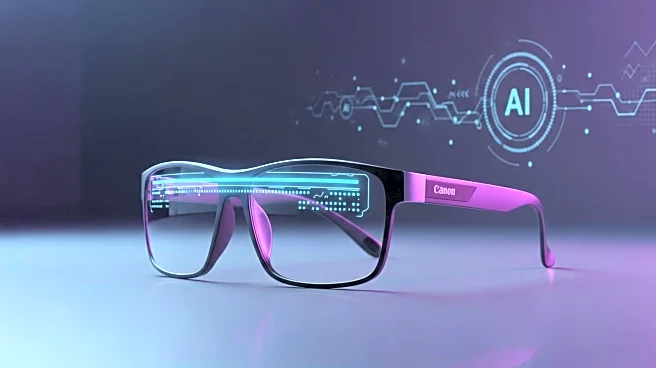What's Happening?
During Meta CEO Mark Zuckerberg's keynote at the Connect event, a live demonstration of the Ray-Ban Meta smart glasses faced technical difficulties. The glasses, equipped with Meta's AI, were supposed to showcase their ability to assist in tasks like cooking. However, when food influencer Jack Mancuso attempted to use the AI to create a Korean-inspired steak sauce, the demonstration faltered. The issue arose when the activation phrase 'Hey Meta' inadvertently triggered multiple devices in the room, overwhelming Meta's servers. This incident highlights the challenges of live demonstrations involving AI technology, especially when activation phrases can cause unintended consequences.
Why It's Important?
The failure of the Ray-Ban Meta glasses demo underscores the complexities of integrating AI into consumer products. As companies like Meta push the boundaries of smart technology, they must address potential pitfalls such as server overloads caused by simultaneous activations. This event serves as a reminder of the importance of robust testing and contingency planning in tech demonstrations. The incident could impact consumer confidence in AI-driven products, emphasizing the need for reliable and seamless user experiences. It also highlights the competitive landscape where companies strive to differentiate their AI capabilities from those of rivals like Google and Apple.
What's Next?
Meta is expected to refine its AI activation protocols to prevent similar issues in future demonstrations. The company may also explore alternative activation methods to ensure smoother user experiences. As the Ray-Ban Meta glasses are set to launch in the U.S., Meta will likely focus on addressing any technical concerns raised by this incident to reassure potential buyers. Additionally, the company might enhance its server infrastructure to handle high-demand scenarios more effectively. Stakeholders, including developers and consumers, will be watching closely to see how Meta addresses these challenges and improves its AI integration.
Beyond the Headlines
The incident raises broader questions about the ethical and practical implications of AI in everyday devices. As AI becomes more prevalent, companies must consider the privacy and security aspects of voice-activated technology. The event also highlights the cultural shift towards AI-assisted living, where technology plays an increasingly central role in daily activities. Long-term, this could lead to changes in how consumers interact with technology, prioritizing devices that offer seamless and intuitive experiences.








